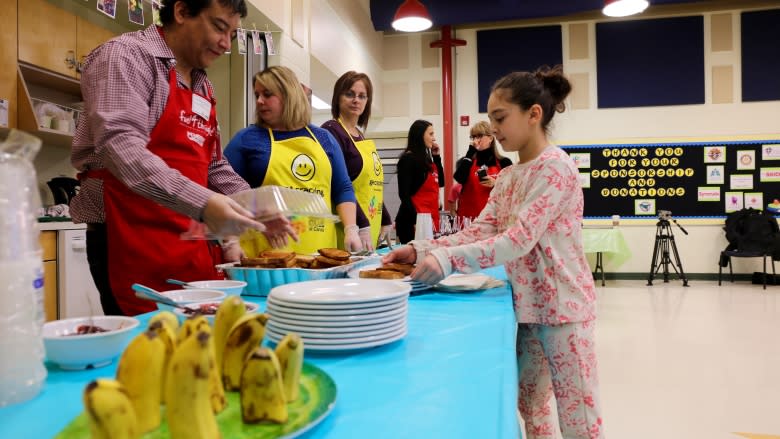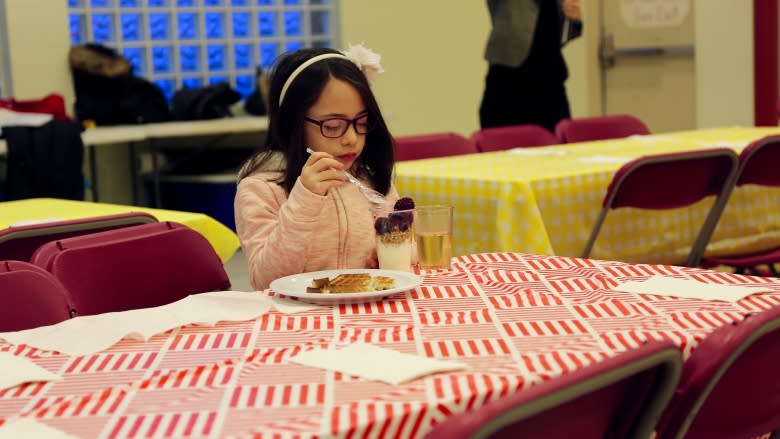Private donation fuels Fort McMurray breakfast club for kids affected by wildfire
A pipeline company is stepping up to support a breakfast program that feeds children of families affected by the wildfire that swept through Fort McMurray last May.
Pembina Pipeline Corp. donated $20,000 to the program at Fort McMurray's Dr K.A. Clark Elementary School.
The Calgary-based company is donating a total of $1 million to support Breakfast Club of Canada programs across Alberta.
"When the wildfire came through it was devastating to this community," said Kevin Mosich, the foreman of Pembina's Fort McMurray operations.
"This is something that we really felt. This is the time to step up and get involved."
On Tuesday morning, staff from the school, the Breakfast Club of Canada and Pembina Pipeline Corp. served yogurt, toast, fruit and juice to about 40 students.
May's wildfire prompted one of Canada's largest evacuations. About 90,000 people were forced from their homes. The fire destroyed 2,400 homes.
In addition to rebuilding, the community and the province are climbing out of what has been described as one of the worst recessions in Alberta's history.
The Breakfast Club of Canada said in a news release the program plays a small but important role in helping families who have been impacted by the wildfire.
"Children should not have to face such difficult challenges on an empty stomach," the statement said.
Dr K.A. Clark Elementary School absorbed many of the students from the wildfire's hardest hit communities because their schools are still closed.
The breakfast program funding will be distributed over three years to purchase food and upgrade kitchen equipment such as fridges, toasters and blenders.
School principal Merrie-Rae Mitsopoulos said it's hard to tell how much the wildfire has increased the need for this program.
The school has hosted the program over the last three years. Before the wildfire there was demand for the program from families that couldn't afford to provide breakfast for their children, or didn't have time to make it for them.
"Has the need increased? It's hard to say," Mitsopoulos said. "Perhaps a little bit, because we were severely affected."



